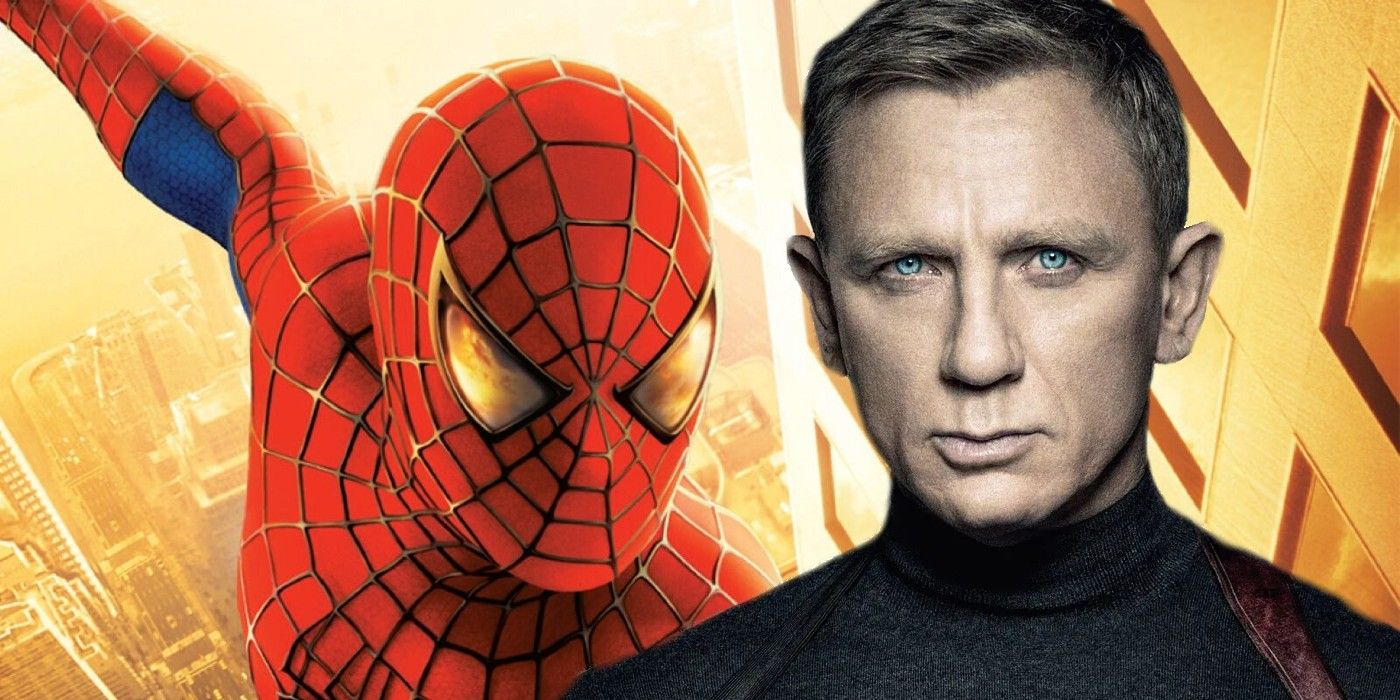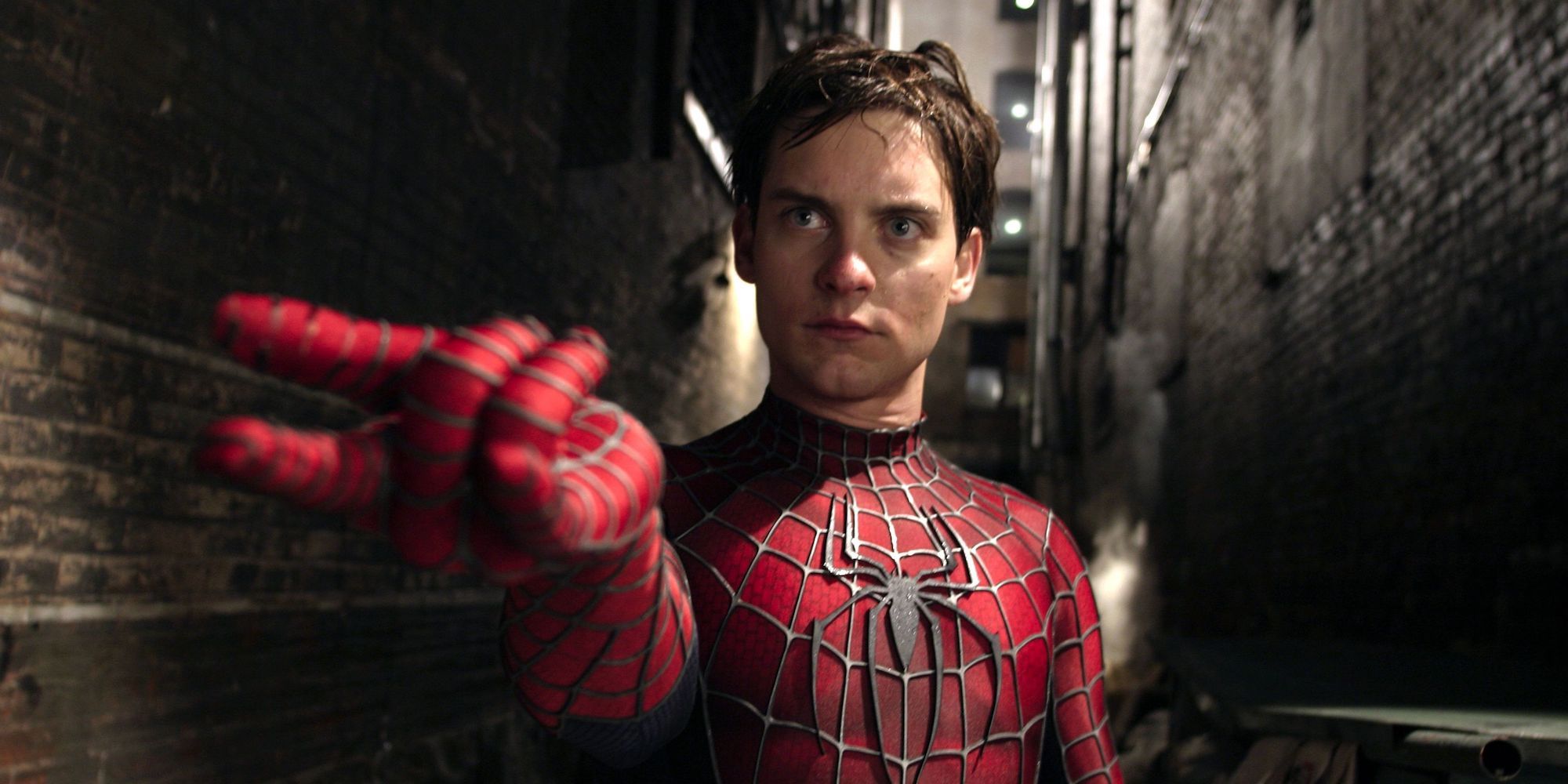
James Bond played a big role in helping Spider-Man get to the big screen. When No Time To Die finally releases later this year, 25 James Bond films would've been produced under the Eon banner. Despite this impressive run, the 007 franchise hasn't been without its legal wrangling. Original Bond author, Ian Fleming, had originally developed the concept of Thunderball and the Blofeld character alongside Kevin McClory in the late 1950s, and the pair entered a lengthy legal battle over movie rights to those ideas. This dispute led directly to 1983's non-Eon movie Never Say Never Again, which reinterpreted the Thunderball plot and introduced Max von Sydow's Blofeld.
While Spidey's movie canon hasn't been as prolific as Bond's (although it won't be long at the current rate), the web-slinger did endure a troubled journey to the big screen. After Marvel initially sold the movie option for Spider-Man in the 1980s, the property was banded around and divvied up extensively, with various filmmakers (including one James Cameron) having a hand in developing one of the many scripts on the table. As crunch time loomed, the various interested parties ended up in court to hammer out exactly who owned what. The legal web came down to MGM, who claimed they had inherited the historic Spider-Man movie rights, and Columbia (a subsidiary of Sony Pictures), who were sold the character by Marvel in 1999.
Coincidentally or otherwise, Spider-Man wasn't the only iconic character Columbia and MGM were locking horns over around the turn of the millennium. MGM had been distributing the James Bond franchise since 1981, but Columbia had purchased the McClory elements of the Bond franchise and were planning another unofficial 007 adventure in the mold of 1967's Casino Royale and Never Say Never Again. Neither studio was especially thrilled with the idea of their big blockbusters facing direct competition, so a deal was struck whereby MGM could keep releasing their James Bond films without another Thunderball-based rival, while Columbia scored the sole rights to Spider-Man.

With the courtroom shenanigans finally resolved, Spider-Man's decades long stint in development hell came to an end when Sam Raimi was hired to direct Tobey Maguire in Peter Parker's 2002 big screen debut. Expanding into a trilogy, the Spider-Man films set the standard for superhero cinema, garnered massive box office and were critically lauded (two out of three ain't bad). But without the intervention of Bond, would history have transpired differently?
Without the cinematic leverage of 007 on their side, Columbia might not have convinced MGM to drop their Spider-Man case. This likely would've resulted in either both studios releasing their own movie iterations of the Marvel superhero, greatly diminishing the impact of both, or more likely, Spidey would've ended up back in court for years more legal back-and-forth. Both scenarios would've stood in the way of Raimi's Spider-Man, and had the 2002 effort not released when it did, the entire superhero boom that preceded the MCU and Nolan's Dark Knight trilogy might've never happened. For Bond's part, the secret agent's future probably wouldn't have suffered as greatly. The Eon films had already seen off competition before and lived to tell the tale, after all.
It's a strange quirk of film history that the fate of the entire superhero genre as it stands in 2020 once rested on the threat of a sequel to Never Say Never Again. Ironically though, Sony would have the last laugh. After yielding their rights to James Bond in the late 1990s to save Spider-Man, Sony ended up distributing the Daniel Craig Bond films anyway when MGM encountered financial difficulty, and this era would include some of the most lucrative releases in 007's long movie history.
from ScreenRant - Feed https://ift.tt/3gh9S4w

0 Comments